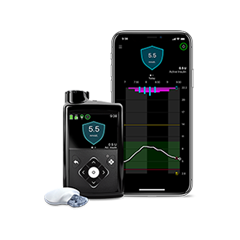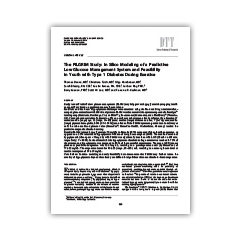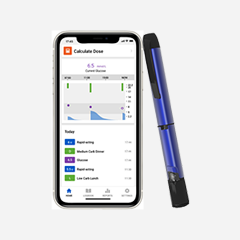
Economic effectiveness
Self-monitoring vs. sensor augmented
Summary: After 6 months where a clinical trial-based economic evaluation was performed, the use of sensor-augmented insulin pump therapy with LGS significantly reduced the incidence of severe hypoglycaemia compared to the standard pump therapy. Based on a primary randomised study, the incremental cost-effectiveness ratio (ICER) per severe hypoglycaemic event avoided was $18,257 for all patients and $14,944 for those above 12 years. Over the 6-month period, the cost per quality-adjusted life-year gained was $40,803 for patients aged 12 years and older.
Therefore, sensor-augmented insulin pump therapy with LGS may be considered a cost-effective alternative to standard pump therapy with self-monitoring of blood glucose in hypoglycaemia unaware patients with Type 1 diabetes. View the study here.
You may be interested in

MiniMed™ 780G insulin pump system^
Automated insulin delivery system to help more patients reach glycaemic targets with less.
View it here

Case studies
We have compiled a variety of clinical studies that you can receive upon request.
View it here

Online learning modules
The MyLearning platform will provide education on Medtronic Diabetes technology.
View it here
